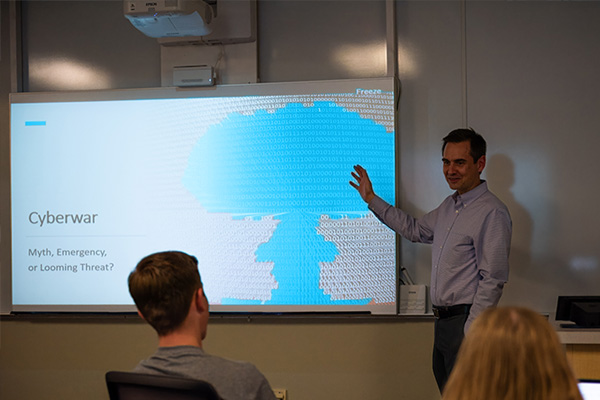Cybersecurity Graduate Certificate
Program Quick Facts
Credits
12
Start Terms
Fall
|Spring
Available
Online
Tuition
$5,768.40
estimated total cost
Secure the cyber world
With the continued rapid expansion of the Internet of Things and the growing number of devices connected to the Internet, expertly trained cyber experts are integral to the workforce around the world. Amplify your cyber training by developing your knowledge of security models, risk assessment, crisis management, and more.
Gain tactical knowledge through examining access control, encryption, network security, and social engineering. Become a lifelong learner, adaptable to the latest workforce expectations, and help create a safer cyber world.
Prepare for the future
The field of cybersecurity offers endless job possibilities as demand for technology and cyber demand continues to rise. This graduate certificate can bolster your skills to earn you a promotion in a variety of security related technology positions. Show your dedication to workforce development and increase your qualifications for technical cyber and military roles.
Expand your career in software engineering, programming, computer science, military positions, and other computing professions.





